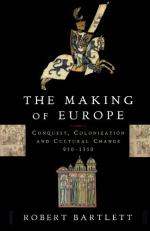|
This section contains 901 words (approx. 4 pages at 300 words per page) |

|
Diplomats. European governments through the eighteenth century conducted international diplomacy with each other largely by means of amateur diplomats. Diplomats were usually, but not exclusively, from the nobility, and foreign language skills, not bloodlines, determined one's fitness for the job. A multilingual ambassador could converse with foreign dignitaries, eavesdrop on court conversations, and intercept and read people's mail. Information gleaned by spying frequently proved critical when negotiating treaties. Some diplomats such as France's Charles Maurice de Talleyrand or Austria's Count Klemens von Metternich were incredibly charismatic and possessed exceptional diplomatic skills. By the nineteenth century, diplomats (and diplomacy) were becoming increasingly professional. European states formally exchanged ambassadors and established a permanent infrastructure of diplomacy (for example, telegraph machines, typewriters, mail and messenger services, permanent embassy buildings, and honor guards) in each others' countries.
Alliances and Neutrality Pacts. The wars against Napoleon...
|
This section contains 901 words (approx. 4 pages at 300 words per page) |

|




